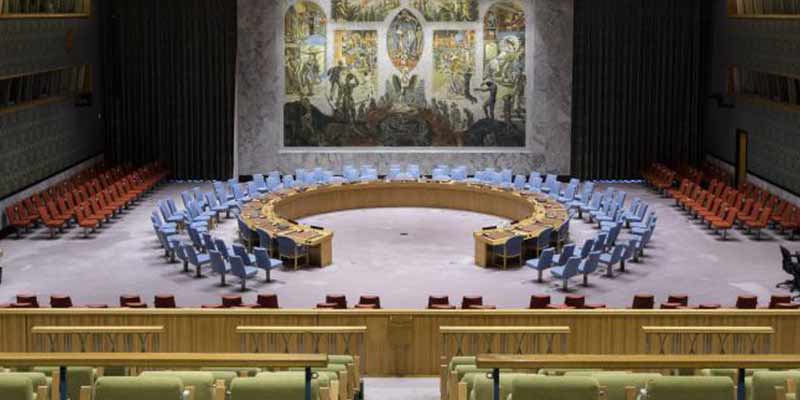- World
- Mar 26
UN Security Council adopts resolution for ceasefire in Gaza
• The UN Security Council passed a resolution demanding an immediate ceasefire in Gaza for the month of Ramzan.
• This was the Council’s first explicit call for an immediate ceasefire since the start of the Israel-Hamas conflict in October 2023.
• The 15-member Security Council has failed in its four previous attempts to adopt a resolution on the Gaza crisis.
• On March 25, the 15-nation Council adopted the resolution, put forth by the 10 non-permanent elected members of the Council, with 14 nations voting in favour, none against and an abstention by permanent member the US.
• The US, which vetoed three earlier Council texts, abstained, allowing the measure to pass. Washington’s change in position reportedly came after intense weekend negotiations among Council members.
• The resolution demands an immediate ceasefire for the month of Ramzan respected by all parties leading to a lasting sustainable ceasefire.
• It also demands the immediate and unconditional release of all hostages and calls for ensuring humanitarian access to address their medical and other humanitarian needs.
• The Council further demands that the parties comply with their obligations under international law in relation to all persons they detain.
Situation in Gaza
• According to an update by the UN Office for the Coordination of Humanitarian Affairs, Between October 7, 2023, and March 25, at least 32,333 Palestinians were killed in Gaza and 74,694 Palestinians were injured.
• Israel’s military operation has since reportedly displaced about 1.7 million and left massive destruction across the enclave.
• Over 1,200 Israelis and foreign nationals have been killed in Israel, the vast majority on October 7, the day of the Hamas attack.
• As of March 25, the Israeli authorities estimate that 134 Israelis and foreign nationals remain captive in Gaza, including fatalities whose bodies are withheld.
UN Security Council
• The United Nations Charter established six main organs of the United Nations, including the Security Council. It gives primary responsibility for maintaining international peace and security to the Security Council.
• All members of the United Nations agree to accept and carry out the decisions of the Security Council. While other organs of the United Nations make recommendations to Member States, only the Security Council has the power to make decisions that member states are then obligated to implement under the Charter.
• The Security Council held its first session on January 17, 1946 at Church House, Westminster, London. Since its first meeting, the Security Council has taken permanent residence at the United Nations Headquarters in New York City.
• A representative of each of its members must be present at all times at UN headquarters so that the Security Council can meet at any time as the need arises.
• The Security Council takes the lead in determining the existence of a threat to the peace or act of aggression.
• It calls upon the parties to a dispute to settle it by peaceful means and recommends methods of adjustment or terms of settlement.
• In some cases, the Security Council can resort to imposing sanctions or even authorise the use of force to maintain or restore international peace and security.
• The Council is composed of 15 members.
• Five permanent members are: China, France, Russian Federation, the United Kingdom, and the United States.
• Ten non-permanent members are elected for two-year terms by the General Assembly.
The right to veto
• The creators of the United Nations Charter conceived that five countries — China, France, the USSR (which was succeeded in 1990 by the Russian Federation), the United Kingdom and the United States — because of their key roles in the establishment of the United Nations, would continue to play important roles in the maintenance of international peace and security.
• They were granted the special status of Permanent Member States at the Security Council, along with a special voting power known as the “right to veto”.
• It was agreed by the drafters that if any one of the five permanent members cast a negative vote in the 15-member Security Council, the resolution or decision would not be approved.
• All five permanent members have exercised the right of veto at one time or another.
• If a permanent member does not fully agree with a proposed resolution but does not wish to cast a veto, it may choose to abstain, thus allowing the resolution to be adopted if it obtains the required number of nine favourable votes.
Manorama Yearbook app is now available on Google Play Store and iOS App Store


